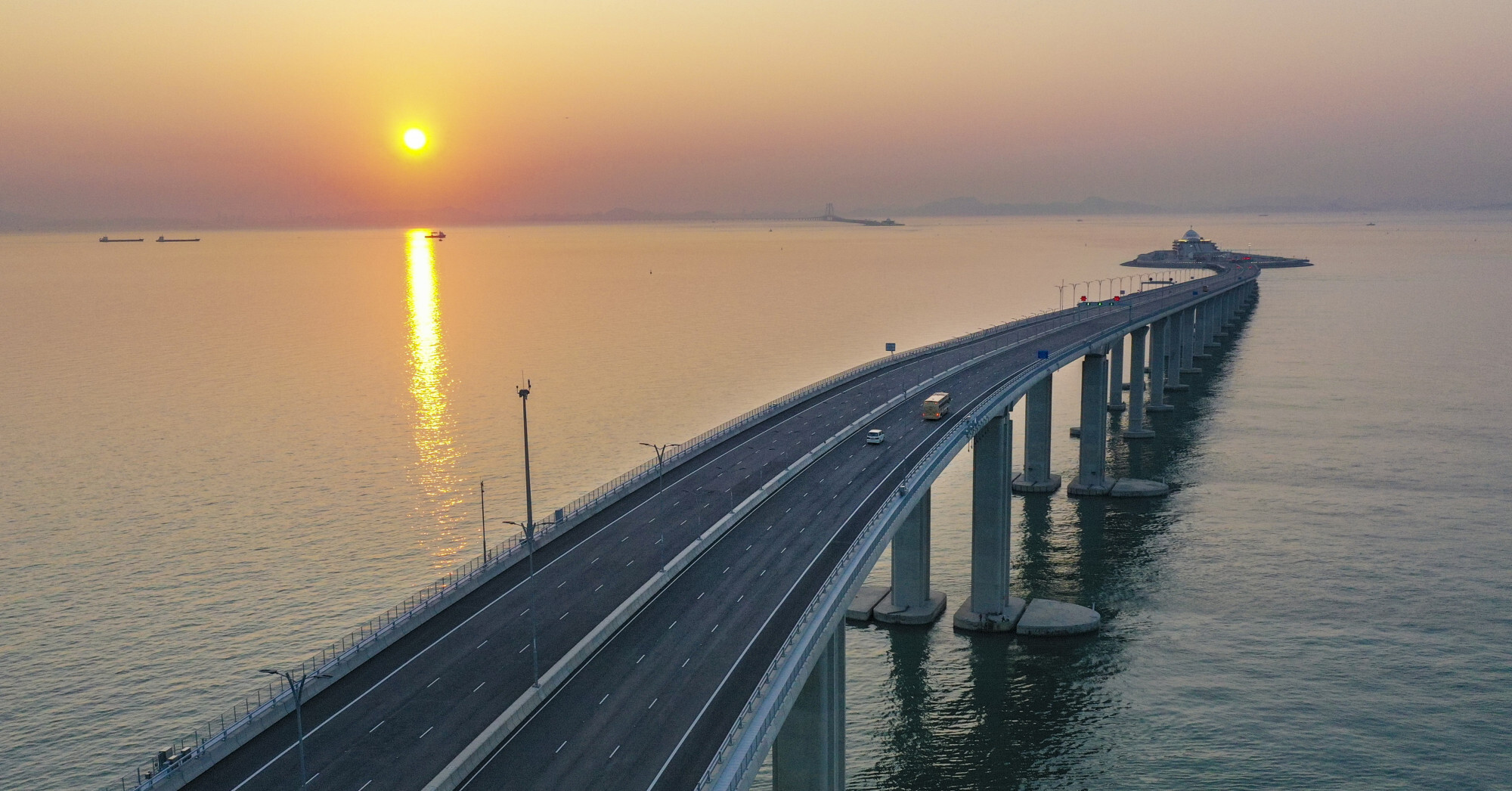
Prosecutors seek stiffer sentences for 12 lab workers who falsified safety reports for Hong Kong-Zhuhai-Macau Bridge
- Deputy director of public prosecutions William Tam argues the group’s sentences were much lighter than those handed to six defendants in a related case concerning the bridge
- The 12 technicians and assistants received a range of sentences in 2019 for altering records and replacing specimens when compiling reports on the strength of the bridge’s concrete
Hong Kong prosecutors have asked the Court of Appeal to impose harsher sentences on 12 laboratory workers found guilty of falsifying safety test reports for a mega bridge linking the city to Macau and mainland China.
The group of technicians and assistants from Jacobs China, contracted by the government to test the strength of concrete used in the crossing, received a range of sentences in 2019 for altering computer records and replacing genuine specimen cubes with fakes when compiling the test reports.
The court heard that between 2013 and 2016, the 12 staff members at the testing laboratory on Lantau Island would falsify the sets of documents – 87 of them in total – whenever they failed to conduct the concrete compression tests in accordance with government requirements due to heavy workloads or poor performance.
Technicians jailed for up to 2 years for faking test results for Hong Kong-Macau-Zhuhai Bridge
Six of the defendants were subsequently jailed for up to two years, while four received suspended terms, and the remaining two were ordered to complete 160 to 240 hours of community service.
On Tuesday, deputy director of public prosecutions William Tam Yiu-ho SC argued there was a very obvious disparity in these sentences when compared to those handed to six defendants in a related case concerning the bridge, who admitted to the same charge and were jailed by the same judge for 21 to 32 months, with time shaved off to account for their guilty pleas.
In applying for review, Tam said District Judge Clement Lee Hing-nin had adopted an appropriate starting point of three years’ imprisonment for the 12, but erred when he appeared to have calculated subsequent reductions to each defendant’s sentence based on the dates on the falsified documents.
Tam argued that those dates were not reliable indicators of when each defendant became involved in the scheme, as they may have been aware of the bad practices earlier.

He also said the reductions were inappropriate and disproportionate, because the resulting sentences could not possibly reflect the seriousness of the offence or the defendants’ culpability, as the judge had concluded in his reasoning for the verdict.
Tam argued the sentences should have been more or less similar, if not identical, given the judge had concluded that the deception was a persistent, systematic and collective practice at the laboratory.
“The judge clearly found that each defendant had played the same role,” he added.
Hong Kong mega bridge finally hooks visitors as anglers give police a catch
Defence counsel Priscilia Lam countered that there was a reason for the disparities, since the evidence in the case at hand was clearly different from and less serious than the facts agreed by the defendants in the other case who pleaded guilty.
Lam also said that the court should not speculate as to the extent of each defendant’s involvement.
The 12 defendants are Tse Tak-lai, Yu Wai-tak, Lee Wing-fai, Sit Ka-chun, Chan Yui-hang, Yiu Yu-fung, Yip Tak-kit, Lee Chi-kan, Ng Man-hung, Cheung Ka-ming, Jo Chan Chi-shing and Kwok Man-fai. All of them have since left the laboratory.
The Court of Appeal has reserved judgment as to whether it will allow prosecutors’ application for review.

